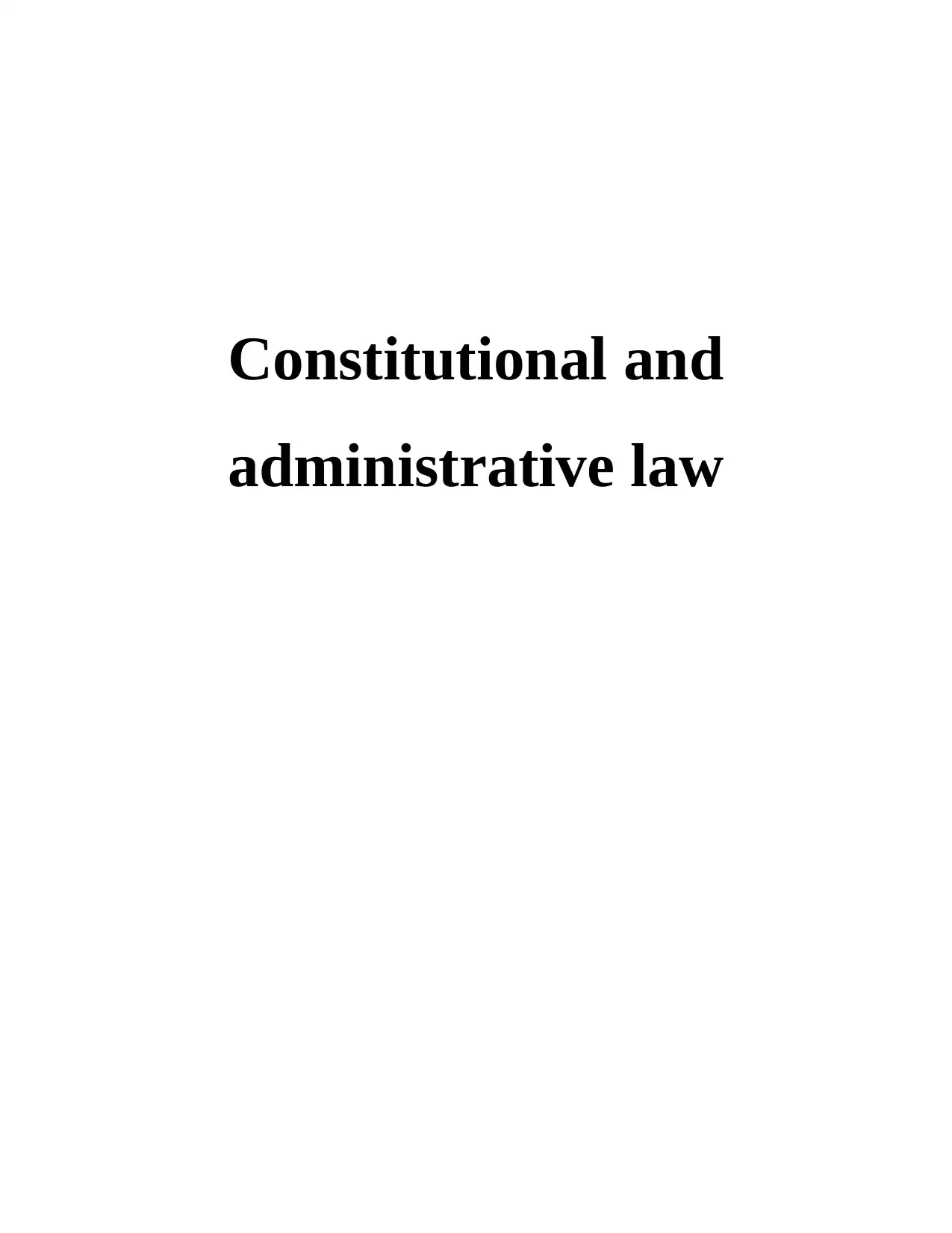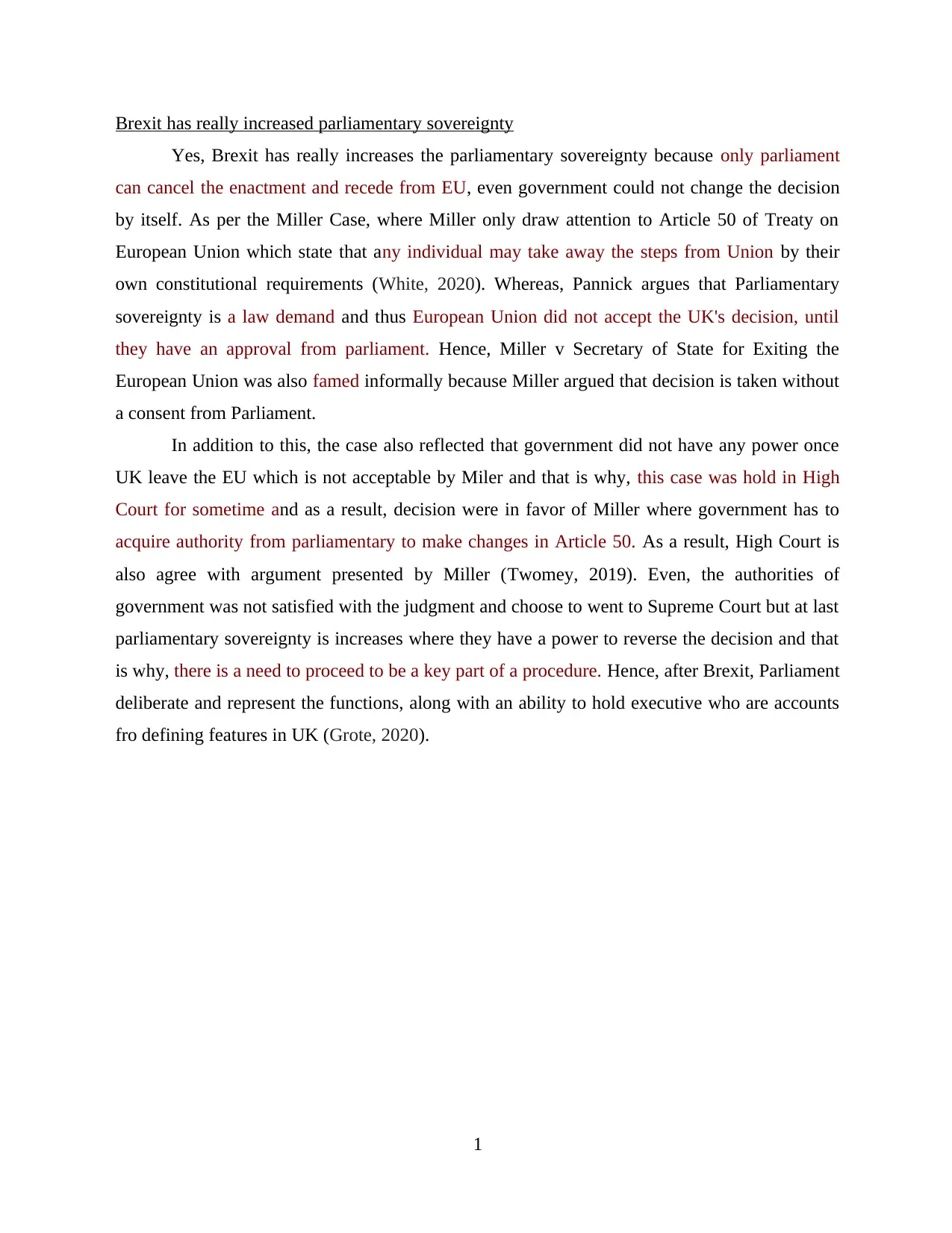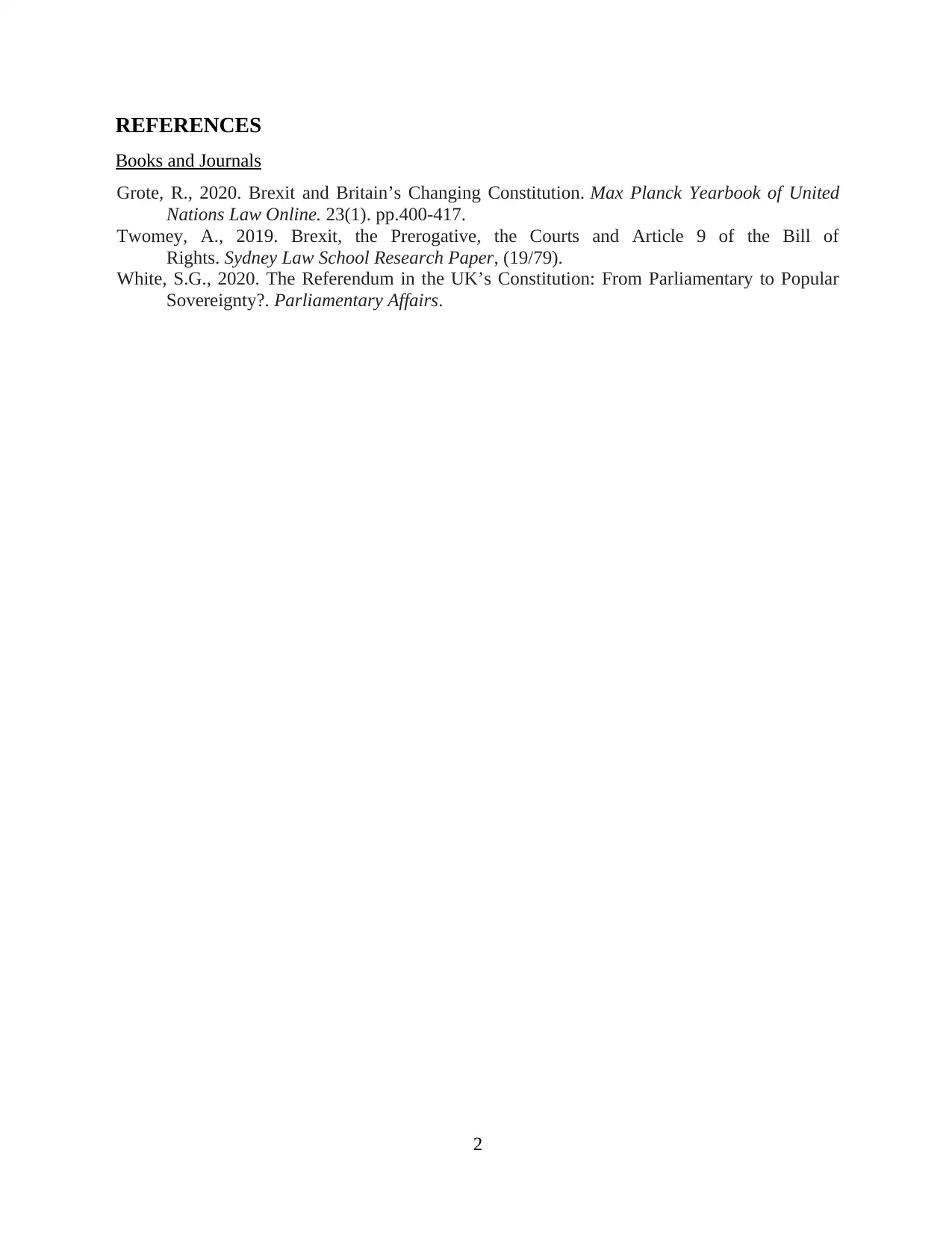Constitutional and Administrative Law Assignment Solution - UK Law
VerifiedAdded on 2022/12/30
|4
|425
|31
Homework Assignment
AI Summary
This assignment delves into the realm of constitutional and administrative law, specifically examining the impact of Brexit on parliamentary sovereignty in the United Kingdom. The solution analyzes the significance of the Miller case and its implications for the UK's departure from the European Union, highlighting how the courts affirmed the importance of parliamentary approval in the Brexit process. It discusses the role of Article 50 and the ensuing legal battles. The assignment also touches upon the evolving nature of parliamentary authority and the government's responsibilities post-Brexit. The solution provides a detailed examination of the legal framework and the shift in power dynamics. It also references key academic sources such as Grote (2020), Twomey (2019), and White (2020) to support its arguments.
1 out of 4









![[object Object]](/_next/static/media/star-bottom.7253800d.svg)